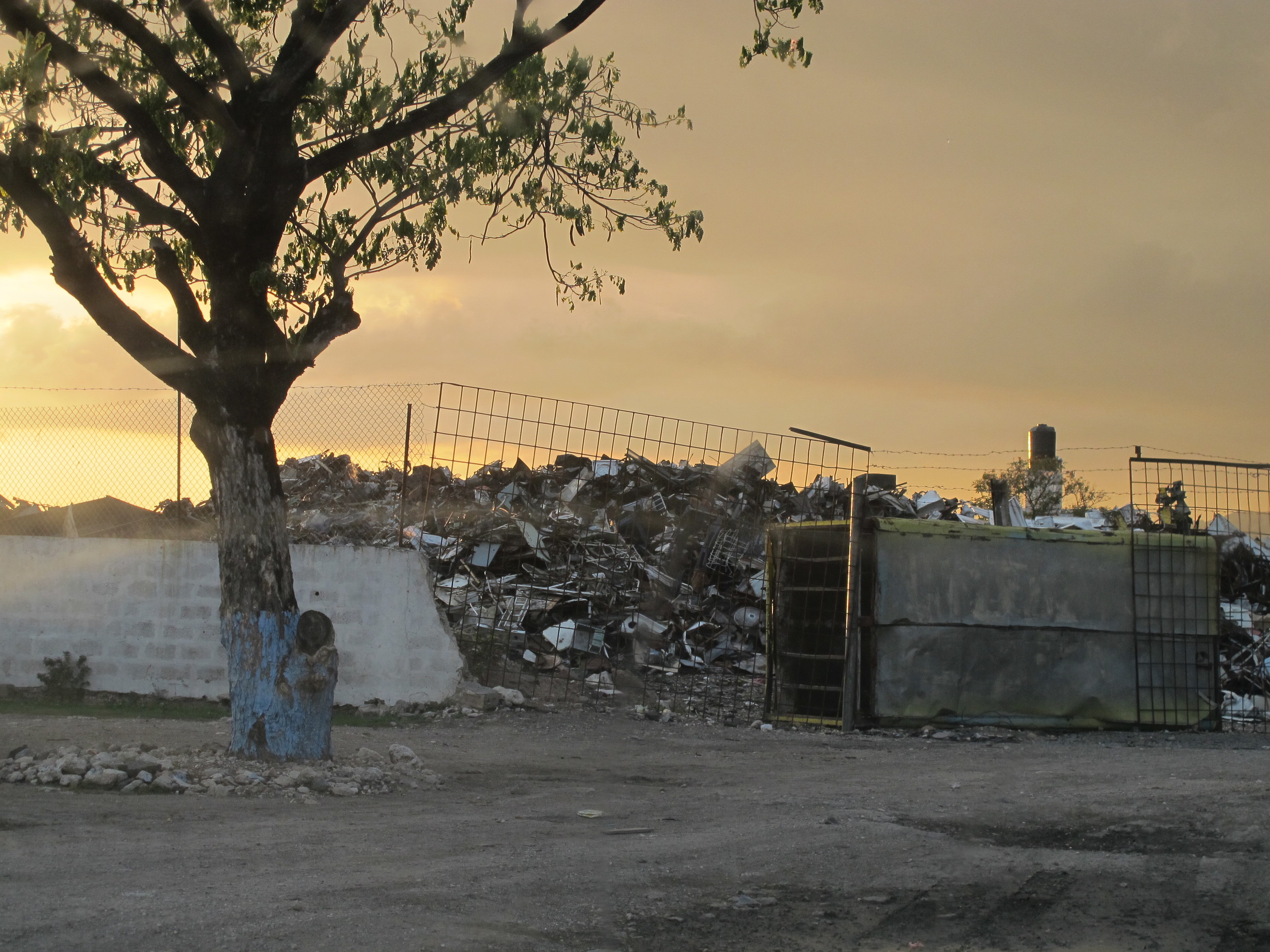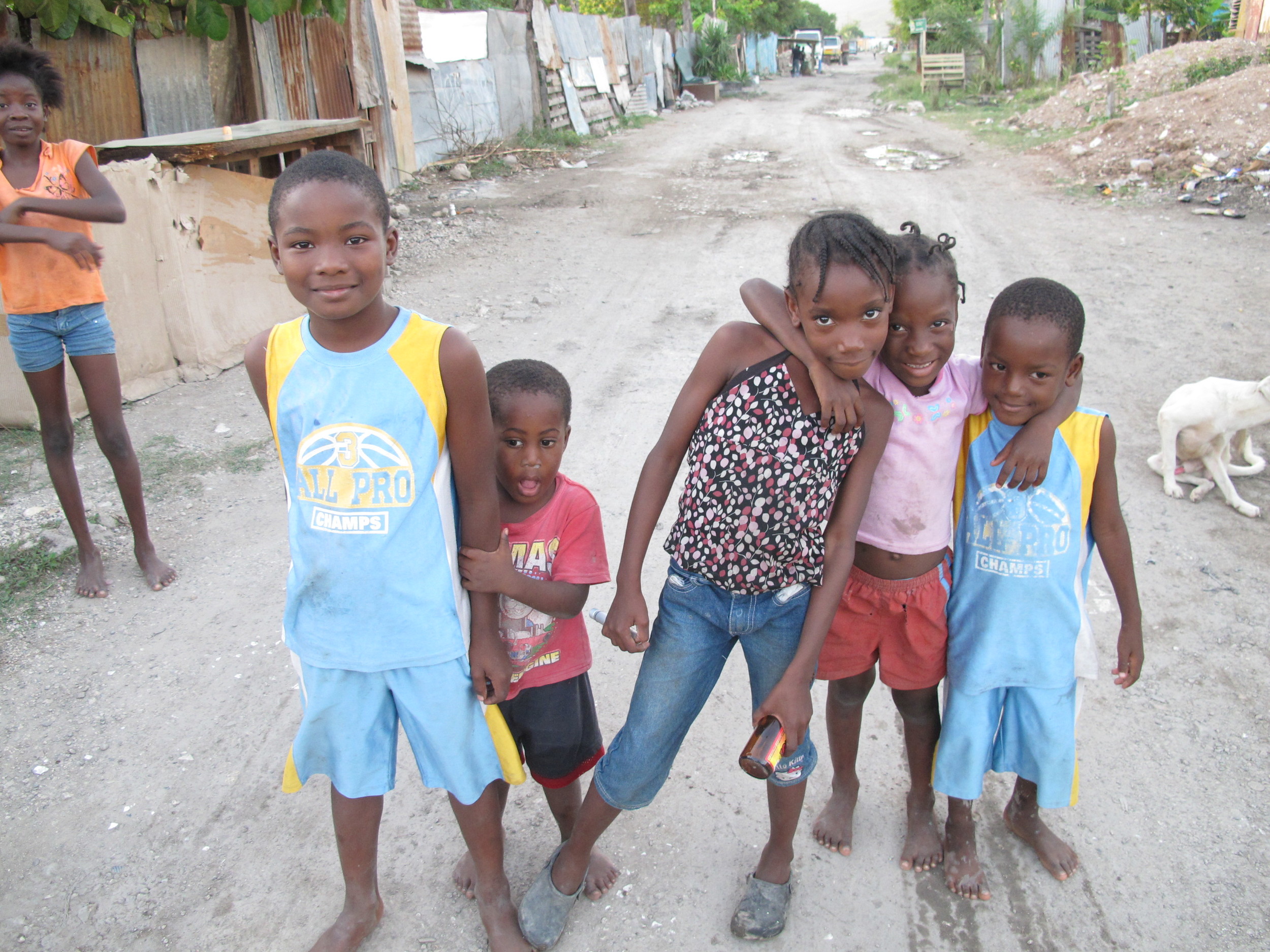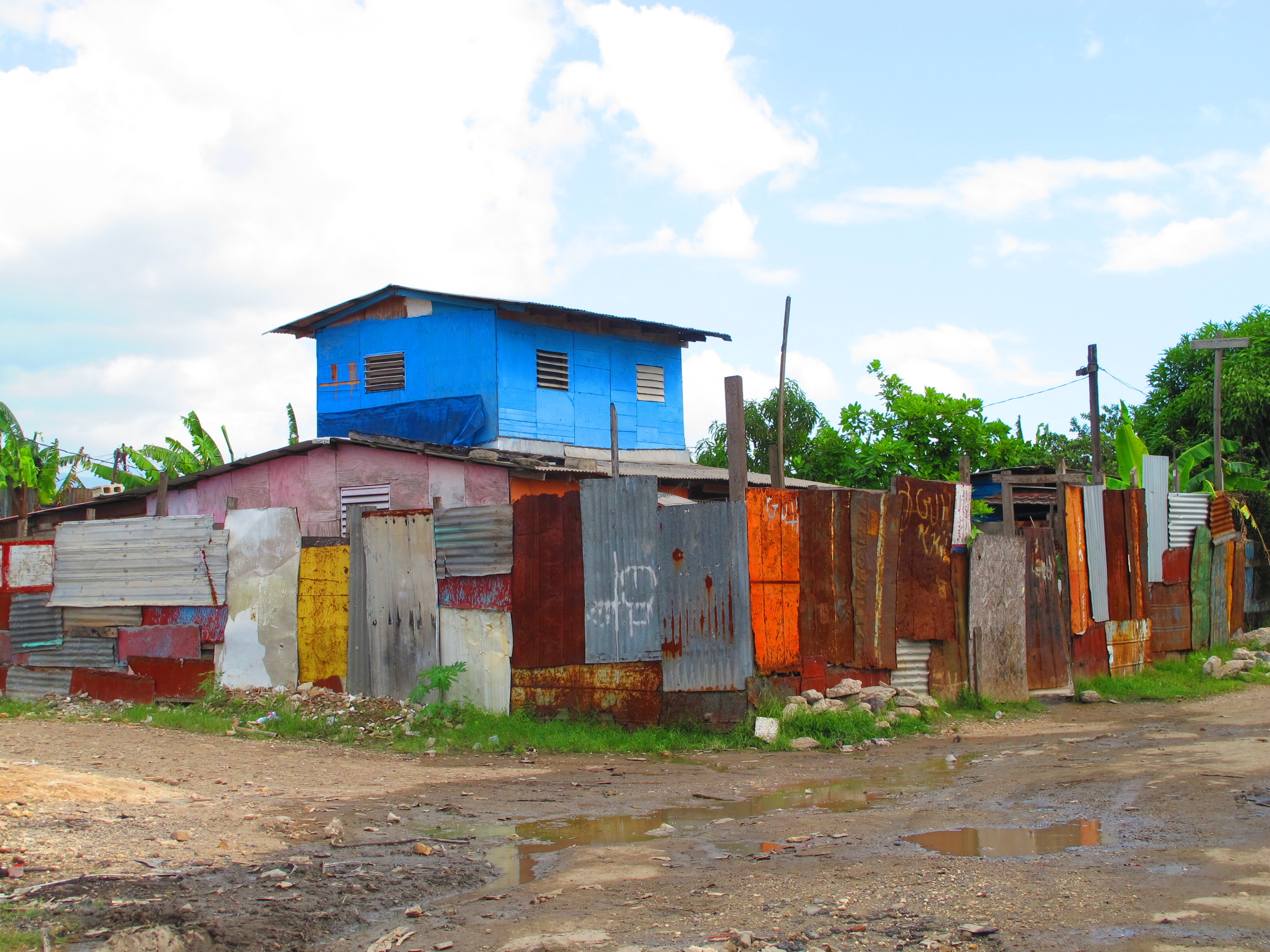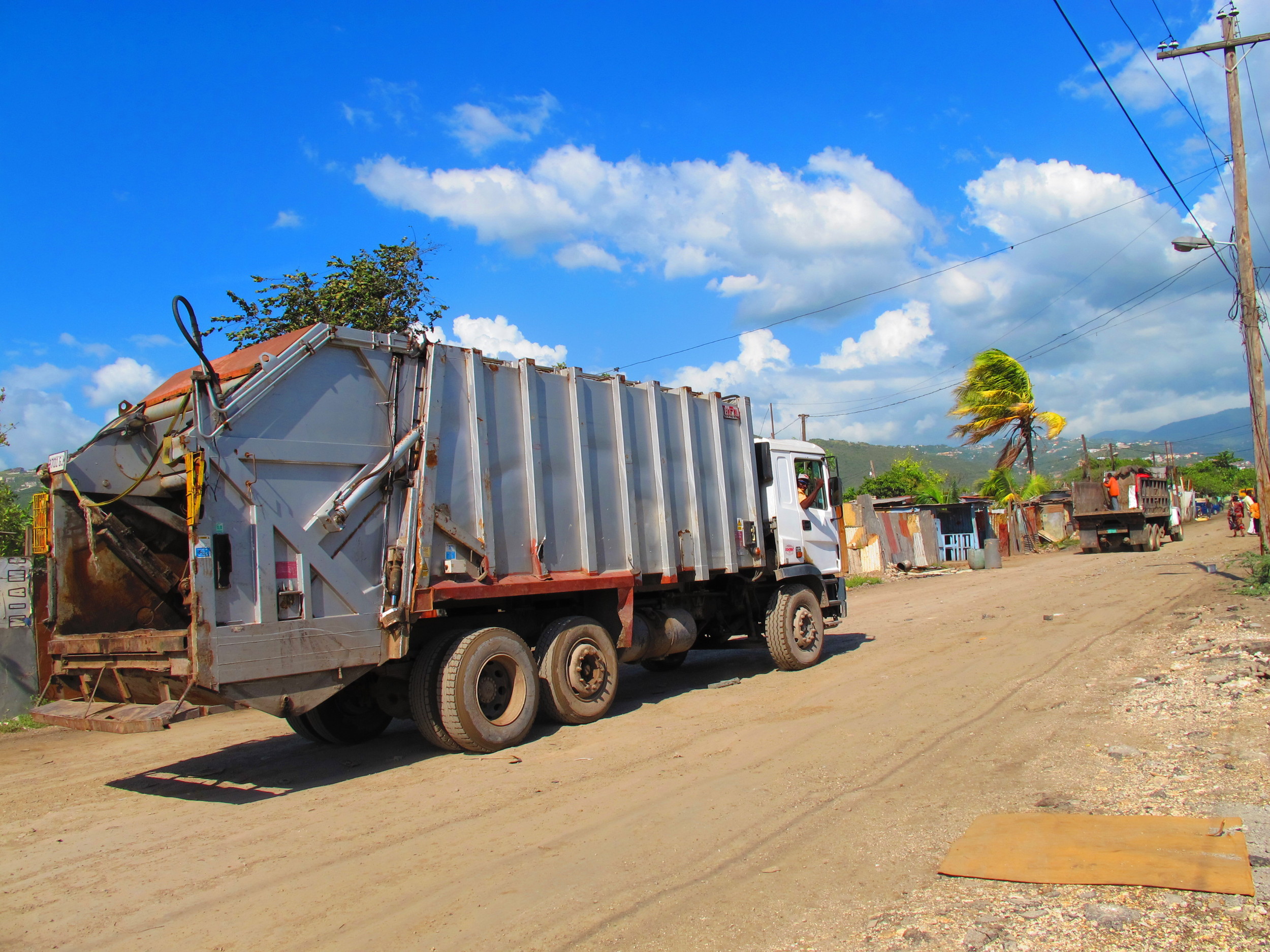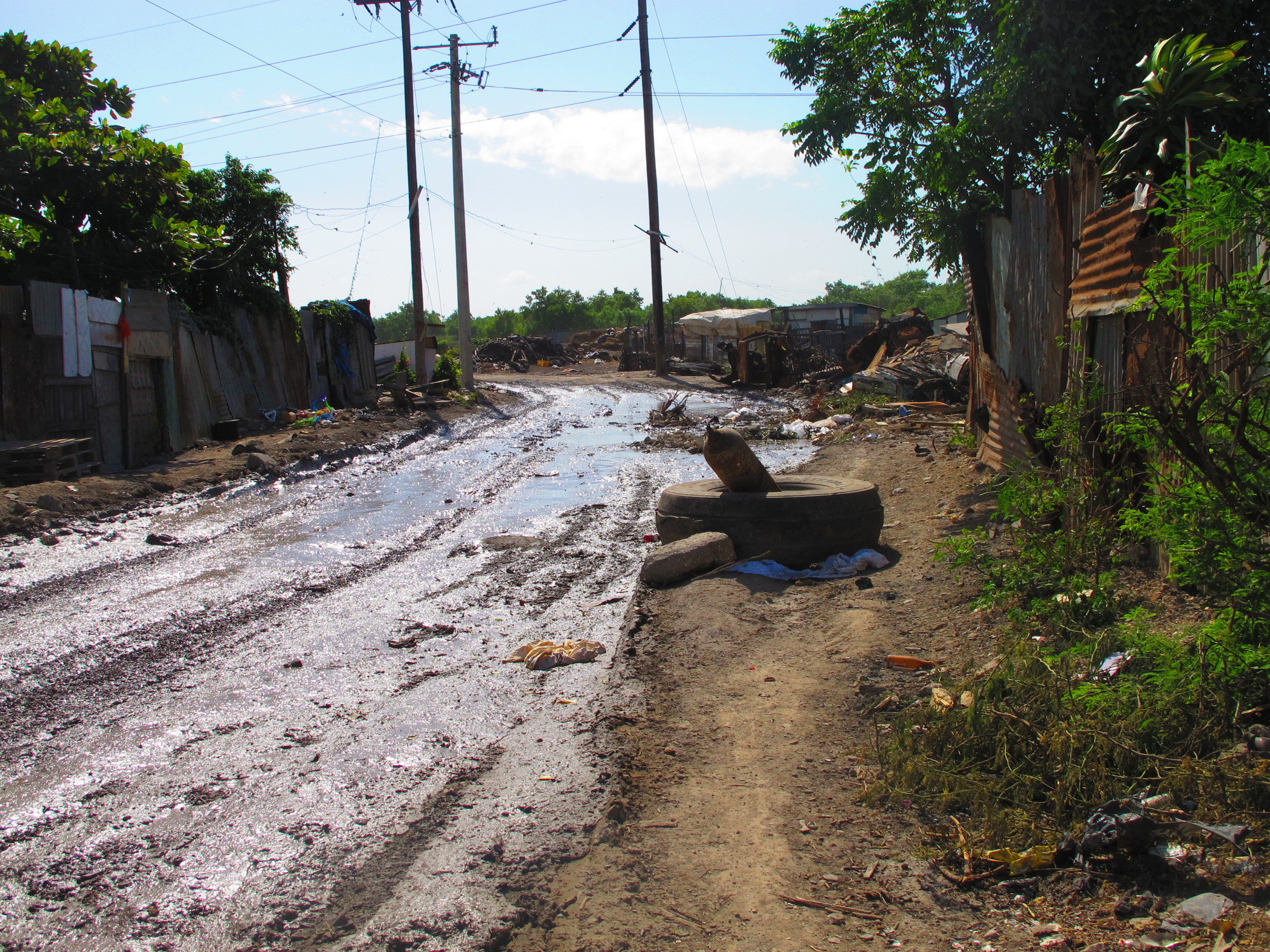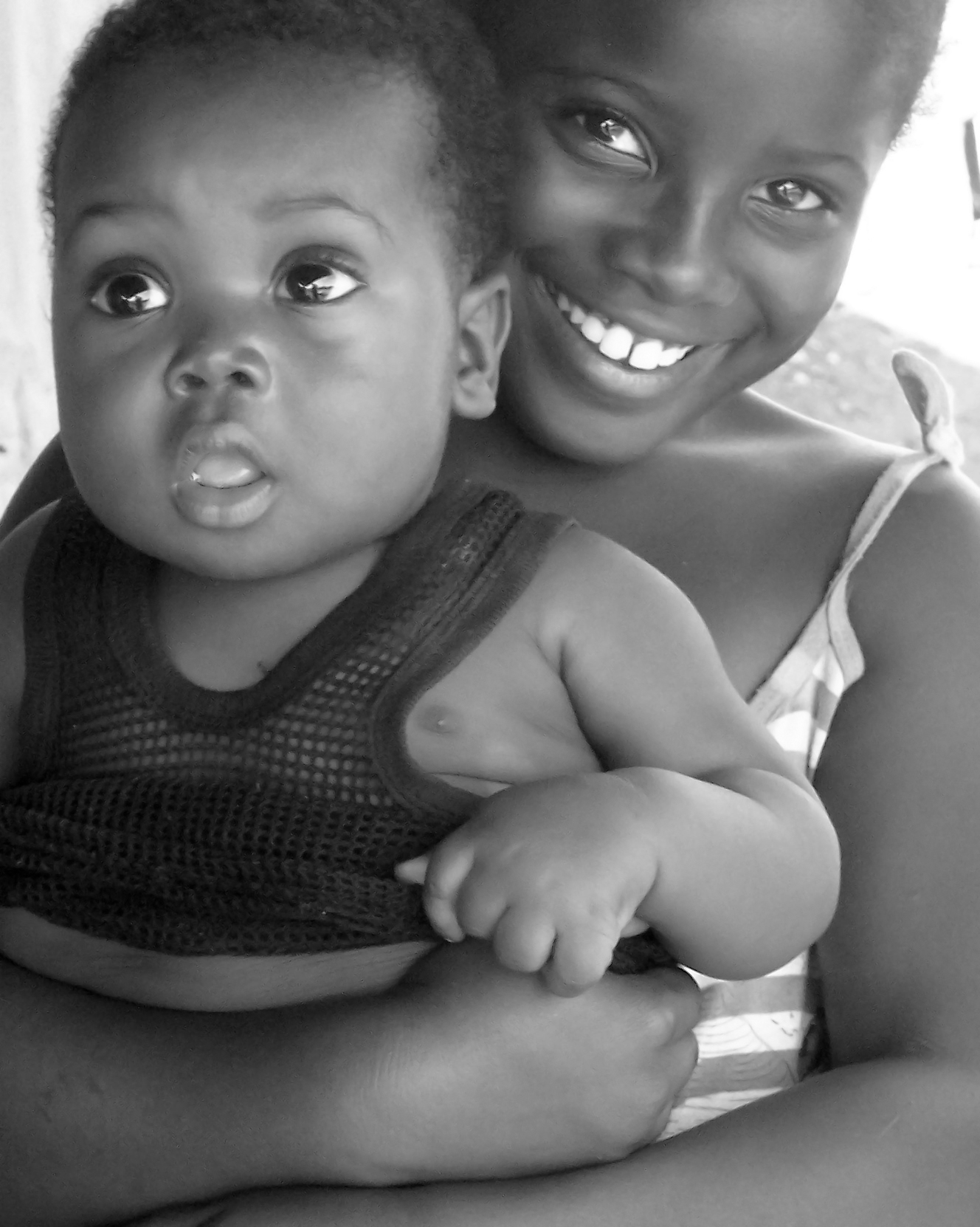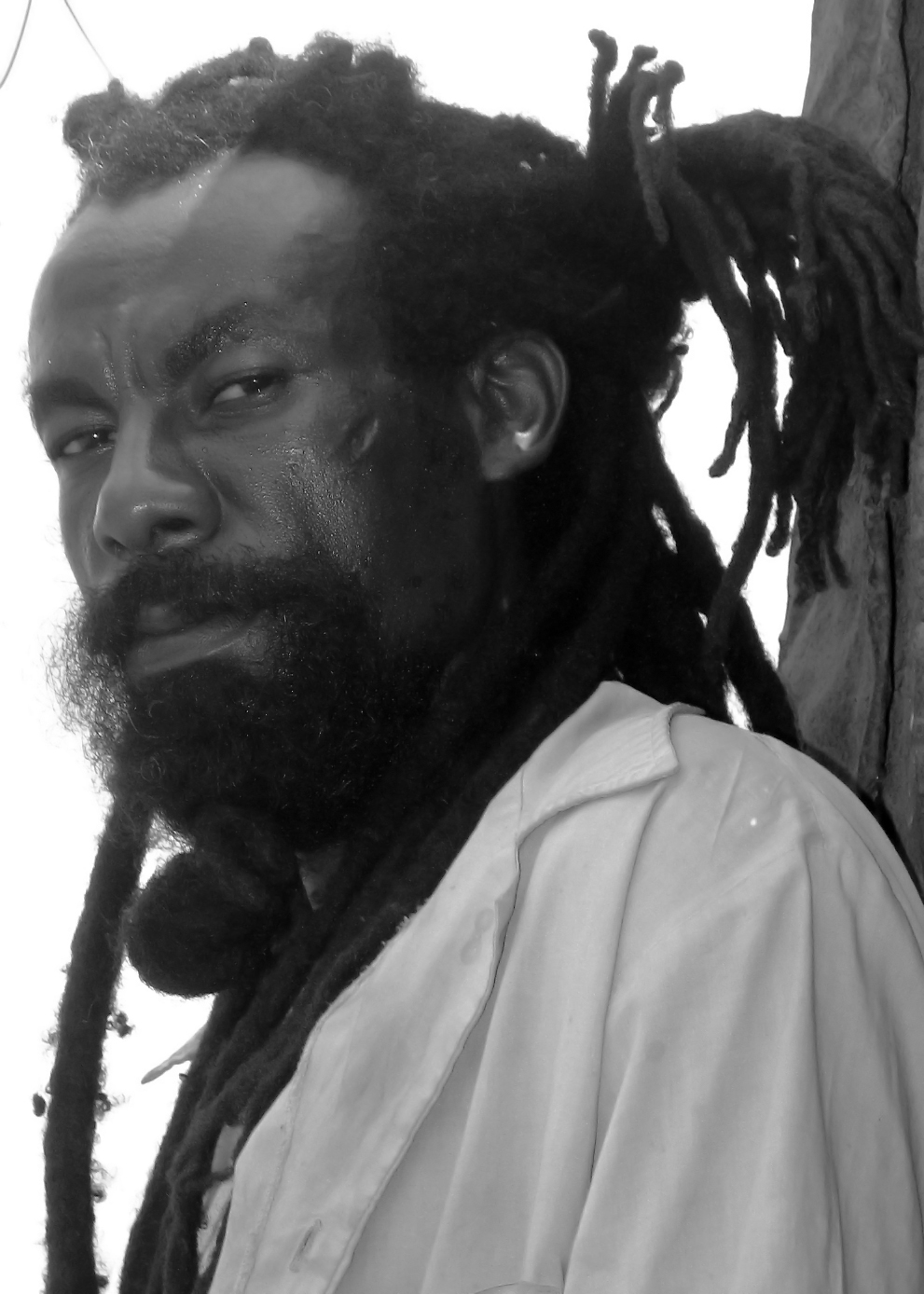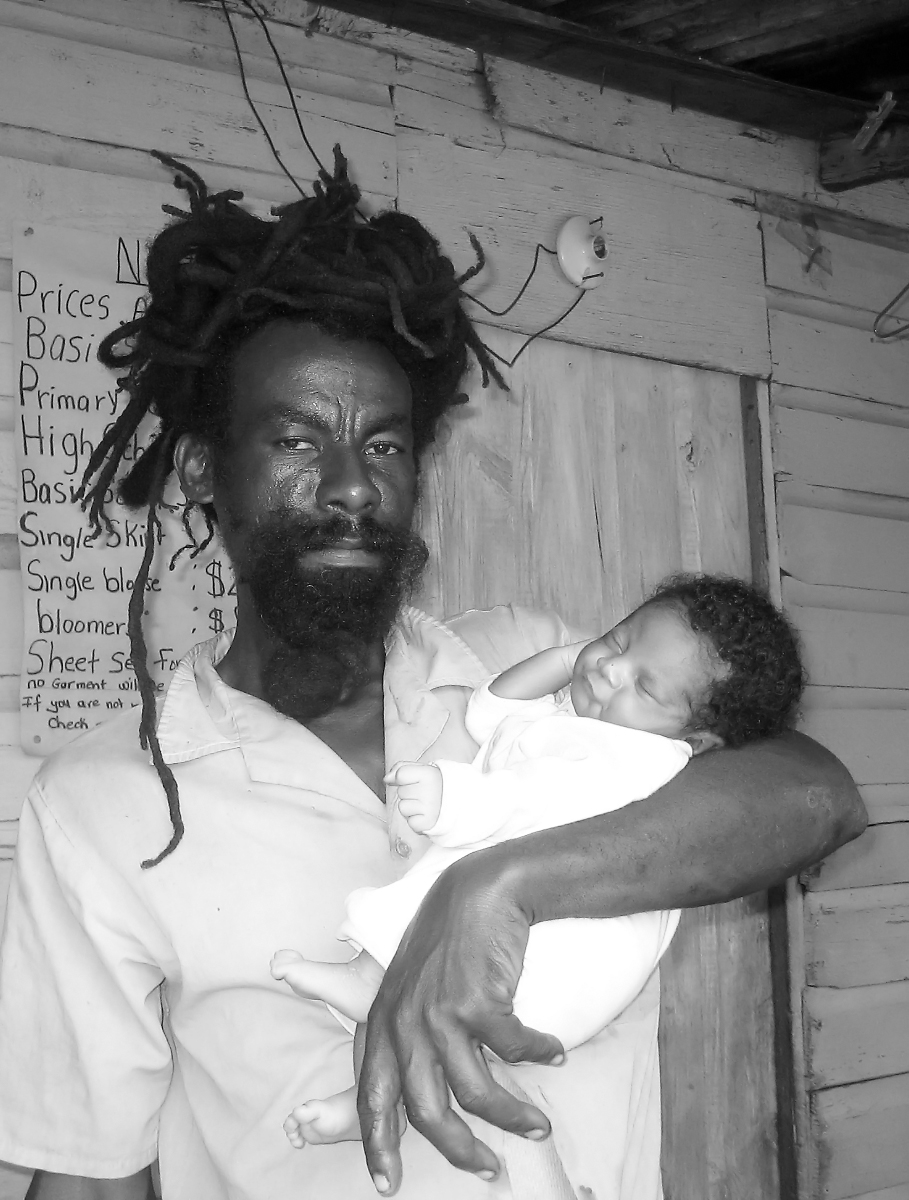Photography by Mark Treuenfels:
During training in Jamaica they were telling us how difficult some sites were, and as an example they described one dangerous site where a basic school had been built next to a toxic waste dump. They told us this site had no safe housing, and volunteers would have to find housing outside of the area.
That became my site. I was in shock. Some people got fishing villages, and sunsets and cool sea breezes. Some people got coffee farms in the mountains, with little waterfalls and wild ginger growing along the footpaths. I got 41 hectares of burning garbage, and 6000 souls trying to make a living off what other people throw away. Dumps in the US are nasty, smelly places. Dumps in the third world are apocalyptic. When I found I had been granted the worst site on the island I told myself, "I won't quit today."
I kept telling myself that every day, but I found something many volunteers never found. I found a group of men willing to get together every day and work for a common goal no matter how lousy they felt or how difficult it might be or even how angry with each other they were that day. These men would take salvaged aluminum from the dump, melt it down in a rudimentary blast furnace fired with waste crank case oil, pour the liquid metal and make pots and pans from it. They used a two-part sand mold method, and rammed up the molds with their bare feet. I was amazed. I didn't know that was even possible.
They had a great process and a good product, but they were barely scraping by because every backyard foundry in Kingston was making the same thing. They were all competing in this very tight market, and driving the price to rock bottom. I suggested we start making things nobody else was making. They were skeptical. These were a people who had learned to believe it when they see it.
So I started making new patterns for them to cast. We tried a lot of things. Many never really sold. Some caught on and are still selling to this day. But what they really wanted was a new workshop. Where they were the goats could get in and walk all over their sand molds. The roof was so bad that a heavy rain could ruin days of work. I landed a USAID grant. We begged old power poles from Jamaica Public Service to use as uprights. We built a much larger workshop, poured a concrete molding floor, and got them a decent zinc roof.
Have you ever flipped through a magazine and seen photos of sad, wide eyed children in poor countries, the text reading something like, "you can save these people for 10 cents a day?" I always resented those ads because they portray the people in those countries as victims. These photos are of men and women who live in poverty, but they are not victims, they are not pitiable, they don't need anyone to save them.
- Mark Treuenfels is a sculptor in Northern California. He served as a Peace Corps volunteer in Jamaica from 1999 to 2001


